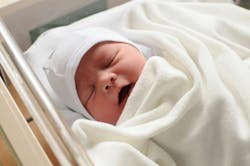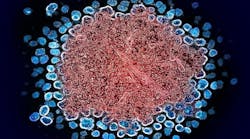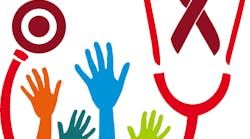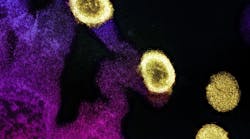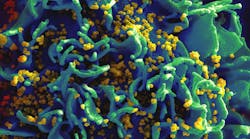A study of more than 50 babies through age 2 in Africa, Asia, North America and South America has added substantially to evidence that giving antiretroviral therapy (ART) to newborns with HIV within the first days — rather than within weeks or months — of life can safely suppress amounts of HIV in the blood to undetectable levels.
Findings of the study, which was co-led by Johns Hopkins Children’s Center physician-scientist and researcher Deborah Persaud, M.D., and sponsored by the National Institutes of Health (NIH) and the International Maternal Pediatric Adolescent AIDS Clinical Trials Network, were published Dec. 4 in the journal The Lancet HIV.
In 2013, Persaud, now the director of the Eudowood Division of Pediatric Infectious Diseases at the Children’s Center, was part of a research team studying the child known as the Mississippi baby case, which was believed to be the first documented case of HIV remission in a child born with the virus. The baby, given ART within 30 hours of birth, remained free of active HIV for 27 months after stopping ART.
With the new study, Persaud and the clinical trials team have been seeking to replicate the case of the Mississippi baby by starting infants on what they call “very early treatment,” defined as in the first 48 hours after birth, which they believe halted the formation of hard-to-treat viral reservoirs — cells that carry genetic material of latent viruses and are unreachable for antiviral drugs, typically allowing HIV to survive in the body for life.
The team enrolled 54 newborns into two groups at 30 sites in 11 countries, mostly in sub-Saharan Africa but also in Brazil, Thailand, the U.S. and other countries, from January 2015 to December 2017.
One group of 34 infants (23 females and 11 males, whose mothers had HIV and were not on ART during pregnancy) were started on a three-drug oral ART regimen of azidothymidine (AZT) or abacavir, lamivudine (3TC) and nevirapine within two days of life. All of the drugs had previously been shown to help prevent HIV transfer to newborns.
In the second group of 20 infants (10 females and 10 males, whose mothers had HIV and were on ART during pregnancy) were started on the same three-drug regimen, but with a lower dose of nevirapine shortly after birth. They then were switched to the same study regimen as the first group by 10 days of age, once enrolled in the study.
A fourth medicine, lopinavir-ritonavir, was also added to the regimen for all babies who were HIV positive after being about 14 days old, an age considered safe for use of the medicine based on previous research. Both groups were on ART through the infants’ first two years of life during this phase of the study.
Researchers estimated that infants had a 33% chance (group 1) or 57% chance (group 2) of reaching and maintaining undetectable plasma levels of HIV in the blood beyond age 2 years.
At the end of the study period through age 2, among the participants who remained with virologic suppression, 83% in group 1 and 100% in group 2 tested negative for HIV antibodies, and 64% in group 1 and 71% in group 2 had no detectable HIV DNA. Among the 54 infants who received very early ART, 19% met all of the study’s criteria for becoming eligible to stop treatment in later phases of the ongoing trial.
